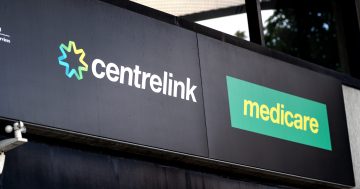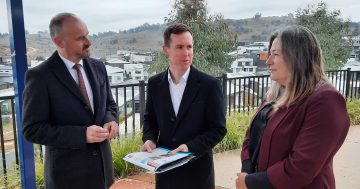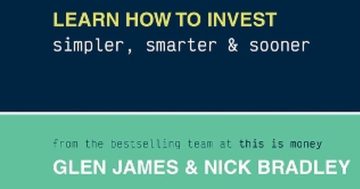Trent Hamm* says people should view paying of their credit card the same way the view investing.
 Many people face a dilemma when they first realise how important it is to invest for retirement and other future goals.
Many people face a dilemma when they first realise how important it is to invest for retirement and other future goals.
On the one hand, they need to start saving money away immediately so that they can take maximum advantage of the power of compound interest when investing.
Meanwhile, they’re facing many monthly expenses, often including credit card debt and other high-interest debt, and it just doesn’t seem like there’s any room for investing.
If you choose to invest, then the debt just continues to rack up interest. If you pay off the debt, you’re not investing.
A quick way to break through that dilemma is to look at paying off high-interest debt as a form of investing.
They both achieve the same thing: you’re using money now to cause an improvement in your net worth going forward.
Making an extra payment on your credit card
Let’s say you have $5,000 in credit card debt on a 30 per cent interest card.
If you make just the minimum payments on that card — calculated as being interest plus one per cent of balance or $15, whichever is higher — you’ll pay $11,760.99 in interest over the course of paying off that card, meaning that $16,760.99 is going to leave your pocket just to cover that $5,000 debt. Ouch.
However, let’s assume you make just one extra payment of $100 right away.
That one single extra payment cuts the total interest you’ll owe from $11,760.99 to $11,511.10, a savings of $249.89.
That $100 used right now to pay off that credit card debt turns into $250 less that you’ll pay on that debt over the long haul.
Furthermore, your debt will be completely paid off a few months earlier than before.
That’s a pretty nice financial impact.
In fact, it’s a positive financial impact that looks a lot like the positive financial impact of investing.
The return is equal to the interest rate on your debt
What’s happening with that $100 extra payment is not actually all that different from what would happen if you invested that $100.
In fact, if you invested $100 in an account that gave you an average annual return of seven per cent, it would take about 14 years for that money to grow to $250.
What if you’re committed to using $100 a month to get ahead financially?
If you put that extra $100 a month toward paying off the credit card early (and kept making the same “normal” monthly payment you made during the first month), you would only owe $1,751.34 in interest and you’d pay off the card in a little over two years.
In effect, every dollar you used for extra payments beyond the minimum would earn at about a 30 per cent rate for the time it took you to pay off the card.
You’d “see” that money at the end, in the form of credit card payments you no longer have to make because the card was paid off.
This is effectively true for any debt. Extra payments on any debt earn you a “return” on those payments.
You don’t actually see that return until the debt is paid off, but you then see it in the form of payments you don’t have to make.
Those payments disappeared because of your extra payments earlier on.
That shows up as breathing room in your monthly budget — that debt bill is gone long before it otherwise would have been.
Paying off debt means more room to invest
If you pay off your debt early, you can now use the money you were using to pay off that debt to begin investing.
Let’s say you were putting $275 a month toward that credit card — the $175 initial minimum monthly payment plus the $100 extra you were putting toward it.
You could now start putting that $275 a month toward your investment goals.
Because your return on your early payments was so high, you’re going to be able to contribute a lot more money to your investment much earlier than you would have otherwise.
In fact, you’ll be able to contribute so much more because of paying off that high-interest debt that it will actually more than make up for the time you didn’t invest.
You’ll be money ahead, compared to just making minimum payments on your debt.
Keep seven per cent in mind
It all comes down to how much you should expect to earn with your investments, and a good number to use is seven per cent.
That seven per cent number is the amount that Warren Buffett advises individual investors to use when estimating their annual returns in long-term investments.
If you’re able to exceed that number in “returns” from paying off your debt, then you should do so.
Thus, a good rule to use is to pay off all of your debt with an interest rate above seven per cent before investing.
In today’s economy, that mostly just means credit card debt and payday loan debt, as most other debts for people with good credit can be locked in below 7 per cent.
If you have debts below seven per cent, you’re probably better off investing over the long haul.
Don’t accumulate more debt
One response many people have to the realisation that paying off high-interest debt can help their finances like this is to actually consider accumulating more high-interest debt. That’s a bad move.
A good way to think of this is to imagine high-interest debt as a hole you’ve dug yourself into.
Eventually, you’re going to have to fill in that hole, and you’re required to do so at least a little in the form of minimum payments.
The longer you spend filling in that hole, though, the more dirt (money) it’s going to take to actually fill it, and that’s dirt (money) that isn’t going into your big pile of investments.
In the end, it’s that big pile of investments that you’re going to care about.
However, if you fill in that hole as quickly as you can, it will actually fill much faster than you think.
All you’re really doing is using a trick to help you fill in your debt hole extra fast.
You’re not actually building wealth.
Digging another hole of debt just means you have another hole to fill in — sure, you can fill it in very fast, but it means even longer before you can start building your investments.
In short, don’t dig more holes for yourself.
Don’t accumulate high-interest debt. Sure, you know the “trick” that, if you do have a hole, you’re better off filling it in really fast, but it’s much better to just not have any hole at all.
Keep your spending under control
This choice between paying off credit cards and investing for the future isn’t really much of a choice if you continue to spend above your means and accumulate fresh debt.
You only really get ahead when you’re spending less than you earn and doing smart things with the difference.
If you’re struggling to keep your spending under control and avoid new debt, your focus shouldn’t be on whether to pay off debt quickly or invest.
Your focus needs to be on building new spending habits. Buy more store brand items, for example, as that can save you quite a bit per week.
Spread out splurges — not only does this save a lot of money, but it also makes each splurge feel a lot more indulgent and meaningful.
Strategies like these, once they become the bedrock of your normal financial habits, will pave the way to financial success.
Too long, didn’t read?
Choosing between paying off your credit cards and investing for the future feels like a tough dilemma, but when you realise that paying off your credit cards means that you’re not paying interest at a high rate, the story changes.
You can then take that money you’re not losing to credit card interest and invest that once the debt is paid off, giving you even more to invest at the start.
Fill in that hole of high interest debt as quickly as possible and you’ll find that your investments wind up ahead of the game surprisingly quickly.
*Trent Hamm is founder of The Simple Dollar.
This article first appeared at thesimpledollar.com











